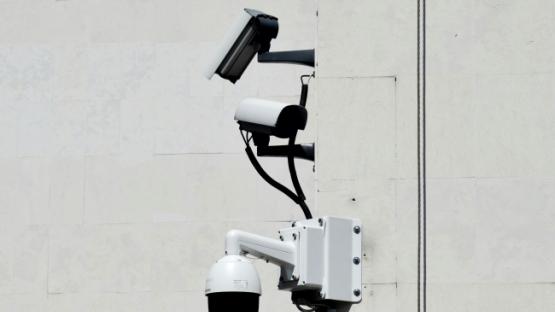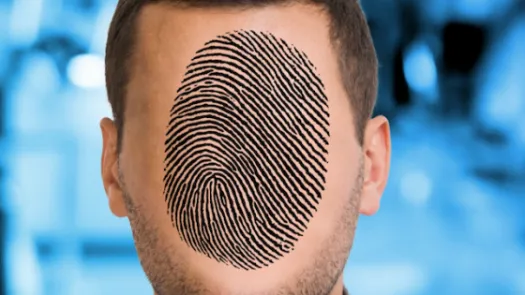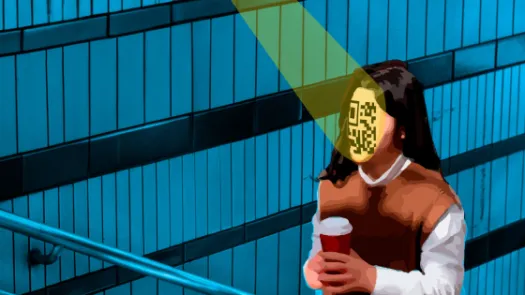
Revealed: “Skyrocketing” scale of UK police's Secret Facial Recognition Searches of Passport and Immigration Databases
Freedom of Information (FOI) requests have revealed the rapidly increasing scale of UK police mass facial recognition searches against the passport and immigration databases.
- The Government has secretly allowed police forces to search over 150 million UK passport and immigration database photos with “Orwellian” facial recognition technology for 6 years.
- The number of searches of the passport database has “skyrocketed” from 2 in 2020 to 417 in 2023. 16 searches of the immigration database were made in 2023, increasing almost sevenfold to 102 in 2024.
- Campaigners to institute legal action, claiming it is an “historic breach of the right to privacy”.
- Former minister Sir David Davis MP says “It’s outrageous that parliamentarians and the public have been kept in the dark about this extraordinary surveillance system”.

Freedom of Information (FOI) requests have revealed the rapidly increasing scale of police mass facial recognition searches against the passport and immigration databases. New figures reveal that the number of searches of the passport database has “skyrocketed” from 2 in 2020 to 417 in 2023, and an almost sevenfold increase from 16 searches of the immigration database in 2023, to 102 in 2024. The Home Office and police forces are conducting these searches against over 150 million photos of the public without a clear legal basis, and without informing the public or parliament.
Privacy advocates from Big Brother Watch, Silkie Carlo, and Privacy International, Nuno Guerreiro de Sousa, have issued pre-action correspondence to the Home Office and Metropolitan Police and are calling for a moratorium on facial recognition searches of the passport and immigration databases.
“Our passports have been secretly turned into mugshots”
The campaigners say the government “has taken all of our passport photos and secretly turned them into mugshots to build a giant, Orwellian police database.” There are currently no public policies meaningfully constraining such use. There is no requirement that police officers have reasonable grounds for suspecting that people they seek to identify have committed any crime, less still serious criminal offences.
Freedom of Information (FOI) requests by civil liberties campaign group Big Brother Watch reveal that the population-level databases have been secretly enrolled in a facial recognition library without parliament’s awareness or any public policy to govern how and why searches can be undertaken. The Home Office stated in legal correspondence that they are working toward introducing a policy.
The passport database holds over 58 million searchable photographs and the immigration database is thought to hold approximately 92 million photographs drawn from visas, immigration databases, and the EU Settlement Scheme. Campaigners have stated that the giant databases have been turned into “watchlists” that cover “most of the residents of the UK”. Big Brother Watch and Privacy International are calling for a moratorium on police searches of both the passport and immigration databases in a bid to “defend the rights of tens of millions of innocent people in Britain”.
Facial recognition searches rocketing
Despite the lack of transparency, new figures reveal that the number of police facial recognition searches of the passport database have drastically increased in recent years: FOI requests reveal that the number of searches conducted by 31 police forces rocketed from 2 in 2020 to 417 in 2023, and 377 more searches had been made between January and October 2024.
Home Office data also shows a sharp rise in searches of the immigration database, with FOI responses revealing that there were 16 searches in 2023, a number that increased almost sevenfold to 102 in 2024. Meanwhile there were 34 searches between January and mid-May 2025.
Thousands risk misidentification
Facial recognition technology used by the Home Office to search the passport and immigration databases means each search likely involves a biometric scan of potentially tens of millions of photos. Campaigners have described this as “repeated and unjustified intrusions on the population’s privacy” and warned that with the current increasing trend in the use of this technology thousands of innocent members of the public could be at risk of being wrongly identified as suspects.
Police already use facial recognition technology to search the Police National Database (PND) , which holds around 20 million photos of people who have been arrested or are of police interest, many of whom have never been convicted of any crime. The vast size of the PND is due to police failing to properly maintain the database and delete unnecessarily held photos due to “technical challenges”. The national police lead for records management, Lee Freeman, admitted to chief constables that the potentially unlawful retention of millions of images “poses a significant risk in terms of potential litigation, police legitimacy and wider support and challenge in our use of these images for technologies such as facial recognition”.
However, FOI responses reveal that police also have access to the giant passport and immigration databases in an attempt to identify people who are not otherwise known to the police, presumably using ‘probe’ photos such as CCTV images, photos taken in public spaces, or social media, to scour the databases.
Ex-minister slams “biometric identity system by the backdoor”
The revelation has outraged senior members of parliament, with former Shadow Home Secretary and Conservative MP Sir David Davis claiming “the Home Office has secretly created a biometric digital identity system by the backdoor, without the knowledge or permission of Parliament.”
Facial recognition technology turns passport photos into biometric data – a category of sensitive data like DNA and fingerprints that can be used to uniquely identify individuals. Given the sensitivity of biometric data, the UK does not hold population-wide databases of DNA or fingerprint records.
Facial recognition technology gives operators a match probability score that is far less precise than other biometrics like DNA, leading to false positive matches. Police and private companies in the UK have already made wrongful accusations against individuals who have been misidentified by facial recognition technology; in the US, individuals have even been wrongly jailed after facial recognition errors.
In October 2023 the then Policing Minister, and now Shadow Home Secretary, Chris Philp MP, stated in an event about shoplifting that the Home Office would “be asking police forces to search[ … ]databases[ …] like the passport database – not just for shoplifting but for crime generally”. The Home Office has since denied that searches are being undertaken for these purposes.
In 2008, the Grand Chamber of the European Court of Human Rights issued a landmark privacy judgment, ruling that English police holding DNA samples of individuals arrested but who later have charges against them dropped is a violation of the right to privacy (S & Marper v UK). The judgment effectively strikes out the possibility of the state building a national biometric database without a specific legal framework.
COMMENTS
Silkie Carlo, director of Big Brother Watch, said:
“The government has taken all of our passport photos and secretly turned them into mugshots to build a giant, Orwellian police database without the public’s knowledge or consent and with absolutely no democratic or legal mandate. This has led to repeated, unjustified and ongoing intrusions on the entire population’s privacy."
“This astonishing revelation shows both our privacy and democracy are at risk from secretive AI policing, and that members of the public are now subject to the inevitable risk of misidentifications and injustice. Police officers can secretly take photos from protests, social media, or indeed anywhere and seek to identify members of the public without suspecting us of having committed any crime."
“This is an historic breach of the right to privacy in Britain that must end. We’ve taken this legal action to defend the rights of tens of millions of innocent people in Britain.”
Nuno Guerreiro de Sousa, Senior Technologist at Privacy International, said:
"The police have been covertly running facial recognition searches on the faces of tens of millions British citizens and anyone with a migration status in the UK, and the government has facilitated this unchecked use of surveillance powers, without any safeguards or public debate.
The principle of “Policing by consent” is hollowed out when the government can bypass the will of the people and parliamentary scrutiny, granting the police sweeping, authoritarian powers without any transparency or accountability.
This secret program is a dangerous infringement on our fundamental rights to privacy and to express ourselves freely, both online and in public. It is especially hypocritical that this is happening in a country that prides itself on upholding human rights. This is why we are standing firm in challenging it."
Conservative Member of Parliament and former Brexit Secretary Sir David Davis said:
“The Home Office has secretly created a biometric digital identity system by the backdoor, without the knowledge or permission of Parliament. The subversion of passport photos into this population-level biometric police database is reminiscent of Tony Blair’s failed attempts to introduce national ID cards and build a DNA database, which were roundly rejected.
It’s outrageous that parliamentarians and the public have been kept in the dark about this extraordinary surveillance system.
“This is an utterly improper misuse of our personal data that nobody gave permission for. It appears to have no judicial check or oversight. It frankly deserves to be struck down.”
Labour peer and former Shadow Attorney General Baroness Shami Chakrabarti said:
“For the Home Office to have converted millions of innocent people’s passport photos into a police facial recognition database is bad enough for our freedoms. That the last government allowed this without public debate, let alone parliamentary authority, is a national scandal. The risk of discrimination, misidentification and abuse is vast and anyone who believes in the infallibility of software should remember the postmasters. The new government should put this right urgently so that the courts don’t have to.”
You can join PI’s campaign “The End of Privacy in Public” to demand your MP take action against the rapid expansion of FRT across the UK. You can write your MP here.



